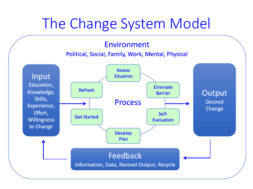
Musings of an Educational Entrepreneur
By Benjamin Franklin
This column gives education leaders the opportunity to discuss higher education issues. For more information contact Jenny Faubert at 920-264-0199 or jfaubert@careereducationreview.net.
Ben Franklin here.
Just after the revolution, we began to consider what our country should look like; we tried the Articles of Confederation and we did not like the way they turned out. We put together a group of folks and met to discuss the way we wanted the country to operate and we came up with our current constitution. It seems that we did a good job as it still lasts in the 21st century. We believed that government should be limited and that personal initiative and freedom of expression were critical elements of a just society.
Nevertheless, I could never have imagined how much government would intervene in the operation of career colleges. When I started my school in 1741, I operated the school based on giving the best education at a fair price. I wanted my graduates to find jobs as printers who could run a business. No one told me what to do or how to do it. I ran a good school; gave a good technical education and I am proud to say that the school exists today almost 280 years later.
School operators today are strangled by a jungle of rules, regulations, and red tape. Critics complain about the cost of private education, but they never consider the immense oversite career colleges must deal with to operate.
A school today begins the tangle of regulations at the local level. To start a school in a local community, they must get approvals from various city and county groups. The cost of compliance to local codes is enormous, from occupancy size restrictions, parking, traffic restrictions, building codes, health codes and zoning ordinances. Finally, schools must get both county and city business licenses, state corporate licenses and a certificate of occupancy.
Prior to the above activities, a school must get approval to operate in its respective state. These approvals vary from state to state but usually, you must submit all kinds of information, procedures, policies, syllabi, financial and personal information to be considered by a board of competitors or even worse state regulators, and sometimes officials from state colleges and universities. These folks can be anti-competitive and place all kinds of unnatural roadblocks in front of a determined edupreneur.
After you get state approval, you may need to get approvals from state agencies specific to a field of study. Nursing boards, cosmetology boards, occupational therapy boards among others. All have rules and regulations pertaining to not only your curriculums but to the institutional support level as well.
Your next layer of oversite is accreditation. Although this step is supposed to be voluntary, operating a school without accreditation is virtually impossible. Accreditation of an institution can take between two and seven years to obtain depending on the agency. The cost of complying with the standards makes the average school executive wince. Everything from equipment, faculty credentials, facility, administrative capability, finances, and student satisfaction, etc. are mandated by your competitor who sits on the accrediting commissions. While most are fair and desire to protect students from you, others can be arbitrary and capricious.
After an institution obtains institutional accreditation, it may seek programmatic accreditation especially if the school wants to serve the most needed occupations in a community, like nursing. The institution must start another self-study, prepare for a rigorous examination like the institutional accreditors and then follow all the policies and guidelines set forth by these specific occupational trade associations which in many cases want to limit the supply of professionals to maintain high salaries for their members.
Finally, the edupreneur must fight the hurdles placed in front of their institutions by the myriad of Federal regulators.
Each agency has its inspector general, volumes of rules and regulations, audit guides and not so obscure threats of legal or criminal prosecution behind every application for approval. A mature school will have oversite by all the following agencies:
- The U.S. Department of Education
- Financial Aid
- Equal Opportunity
- Other activities
- The U.S. Department of Labor – WIOA
- The U.S. Department of Veteran Affairs
- The Federal Trade Commission
- The Fair Labor Practices Commission
- The U.S. Justice Department
- The U.S. Immigration Service (SEVIS)
- The Consumer Protection Board
- The Department of Defense
Each of the agencies has its own enforcement arm to ensure a school follows all the rules and regulations they promulgate no matter how arbitrary and capricious they are.
It is so hard to understand how our country went from the free and the brave to the shackled and afraid. No wonder our students have so much debt because of the enormous cost of compliance. I feel sad for the career education leaders of today because they cannot enjoy the fruits of the labor of changing young people’s lives in the shadow of the sword of the government.







